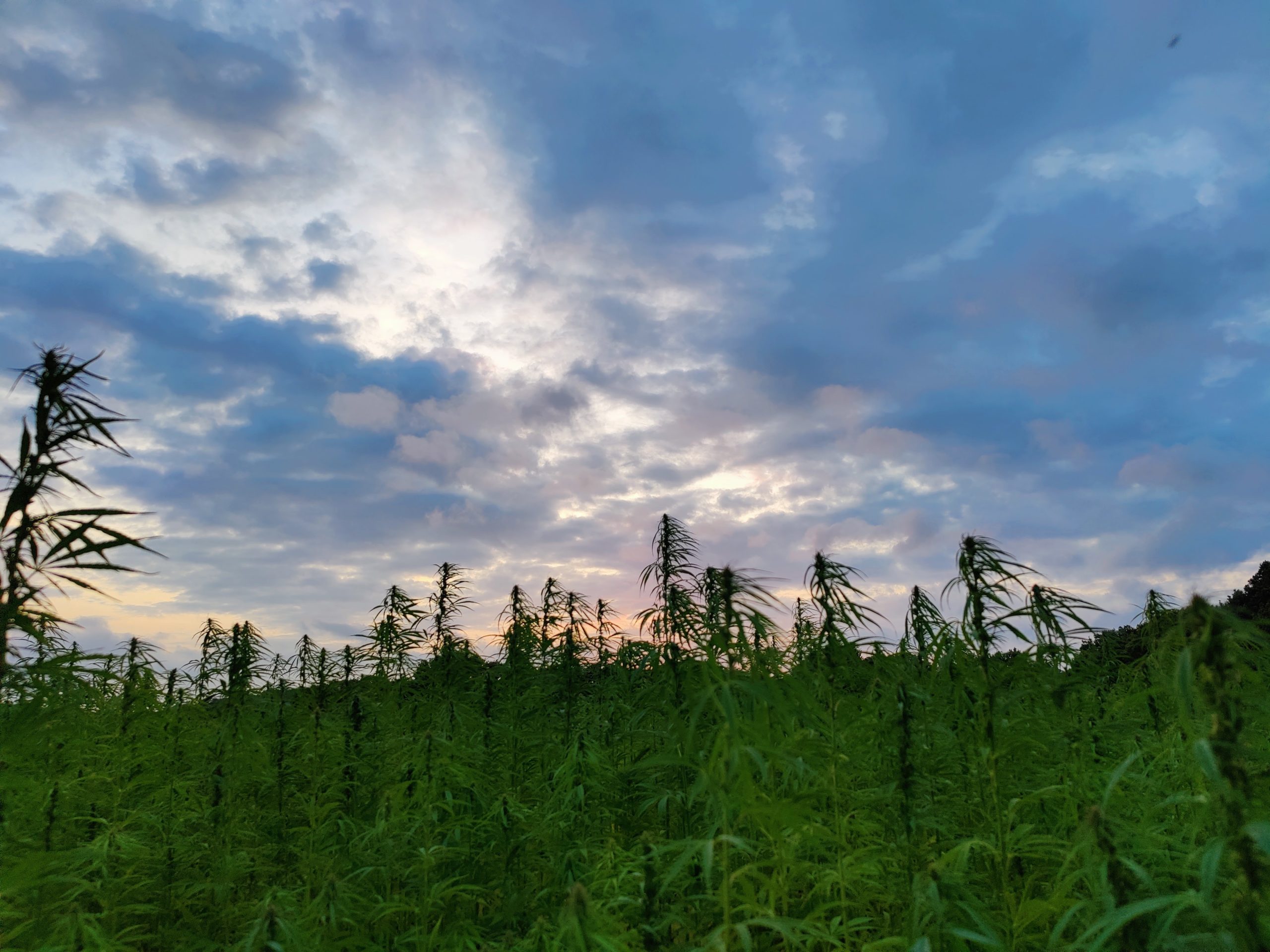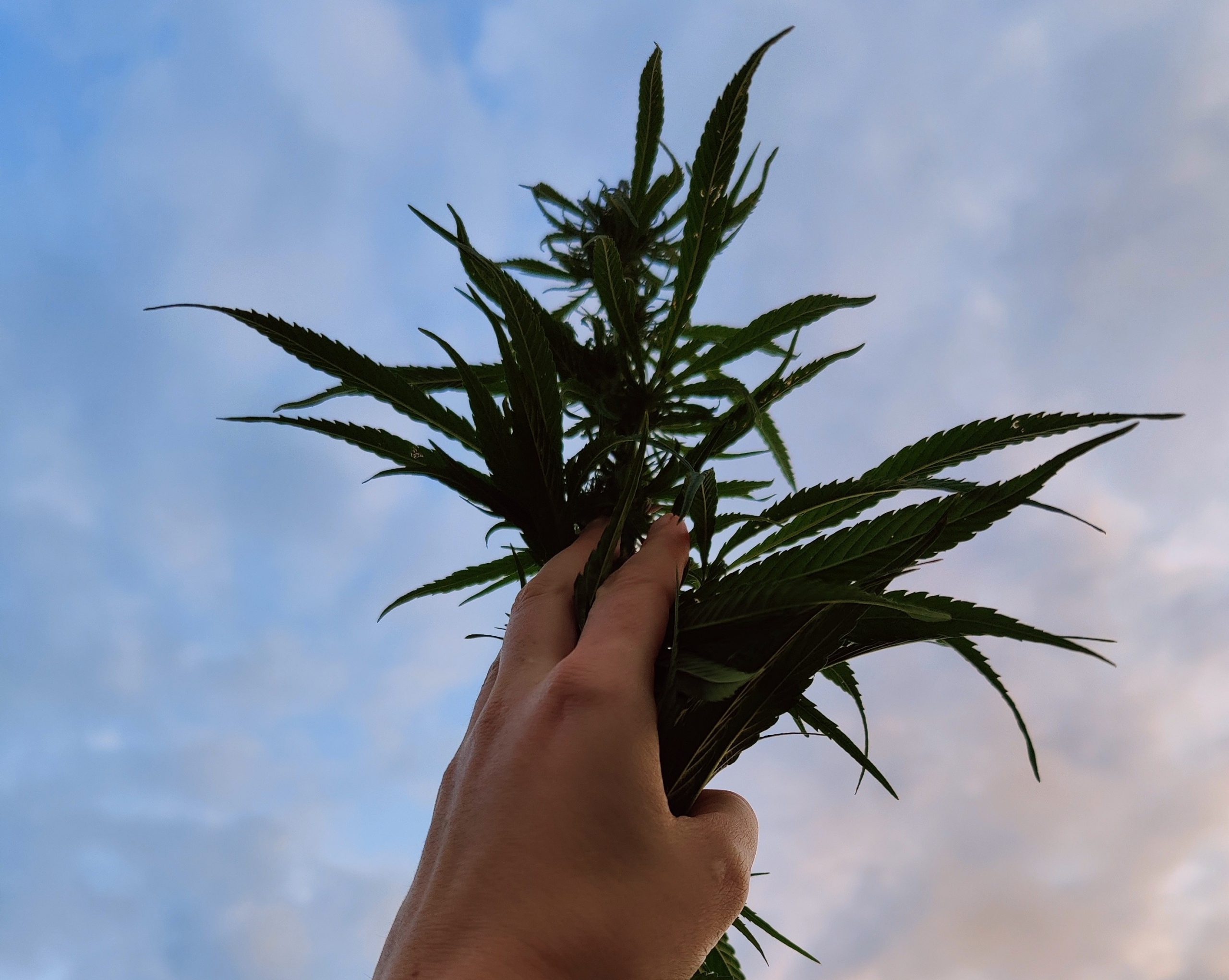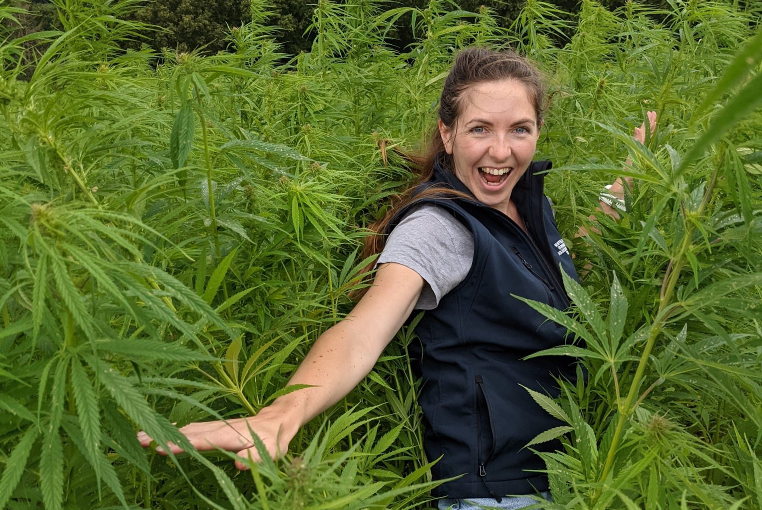Ed. note: This article first appeared on ARC2020.eu. ARC2020 is a platform for agri-food and rural actors working towards better food, farming, and rural policies for Europe. Part 1 of this series appeared on Resilience.org here.
For many growers it’s a plant with huge potential. For many policymakers it’s a dangerous drug. Despite a lack of tools, knowledge, infrastructure and support, woefully few routes to market, and suffocating restrictions on production and use of the crop, meet the British hemp growers who are ploughing ahead. Now a campaign of civil disobedience hopes to provoke policymakers to rethink regulations. Story by Ursula Billington. Second in a two-part series.
Steve Barron, a film director who turned his hand to farming when inspired by hemp’s planet-healing qualities, is on a mission to promote the plant. He turned 21ha to hemp at Margent Farm near Cambridge with the logic that, “Even the very act of growing will pull carbon out of the atmosphere, will do good for the soil.”
He has since partnered with the Centre for Natural Material Innovation at Cambridge University to build a hempcrete farmhouse and produce equipment such as hemp-encased cameras.
Steve is clear-eyed on the legislative powers curtailing UK hemp growth, explaining:
“The main issue is restricting full use of the plant – leaves, flowers and extraction of CBD. The availability of biomass would greatly increase for all industry, including construction, if we allowed farmers full value of their crops.”
He views the restrictions around CBD production, in particular, to be nonsensical:
“We’d be producing home-grown CBD instead of importing, which is ludicrous when we have to destroy our own plants’ CBD.”

Chicken and egg
Camilla Hayselden-Ashby, growing hemp on a 300ha mixed farm in Kent, is a 2021 Nuffield scholar researching international best practice to support the domestic hemp industry. She suggests there are a number of barriers aside from licensing and expense. With only 800-2000ha of hemp in the UK currently, the agronomic knowledge system is lacking: there are limited resources, advice and peer networks. The country is also currently reliant on the EU’s variety list which, as hemp is latitude dependent, is not ideal for local conditions.
The country’s small hemp ecosystem results in expensive harvesting equipment, a lack of processing facilities and limited established routes to market. Whilst some progress is being made in this vein, with lots of interest from construction, textiles and car manufacturers, says Camilla:
“It’s a chicken and egg problem – getting the scale of supply and demand to match up. There are also problems linking farmers with consumers.”
Camilla is keen to support work to persuade government to reconsider legislation, such as this on-farm, science-based research project:
“I hope that by building data on the environmental benefits of hemp we’ll encourage the relaxation of the licensing around it,” she said. “It’s not a dangerous drug, it’s a plant with huge potential and farmers should be encouraged to grow it in the same way they’re encouraged to grow legumes to improve soils.”

Taking hemp into our own hands
Despite growing interest from farmers, a booming global market and government Net Zero targets, the UK Home Office has stated it has no plans to change the licensing process, defining it as “robust but proportionate.” So growers like Hempen, tired of battling with an outmoded, expensive bureaucratic system, feel compelled to take a people-powered approach to building a hemp-driven future.
Overgrow the Regime asserts the fundamental tenet that hemp farmers should not need a license to grow hemp.
Within current frameworks, the campaign stresses licensed farmers should be allowed to harvest the whole plant – including flowers for CBD extraction – with regulations applying to subsequent products, rather than farmers. It calls on individuals to grow hemp without a license – from windowsills to allotments to hectares – to provoke government policy rethinks.
A gathering at Hempen in late April will bring together interested parties, activists and fellow farmers for education and knowledge sharing, spurring on campaign action.
Steve Barron hopes the UK will be able to scale up production considerably, for the sake of British farming.
“Hemp farming could and should be substantial in the UK. It could become the cash crop that the farmers need so badly in this country,” he says. “This would then support innovation in several industries like construction, bioplastic and health products. We need government support to kickstart the powerful potential.”
His main interest, though, is the holistic value that hemp provides:
“The ecological impact for clean air, rich soil, plastic-free ocean and human health would be the key gain. Hemp is a big step towards a cleaner, healthier Earth for us all to live.”
Teaser photo credit: Hemp grower Camilla Hayselden-Ashby with her crop. Photo courtesy of Camilla Hayselden-Ashby





